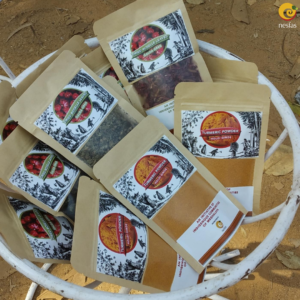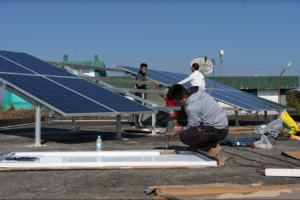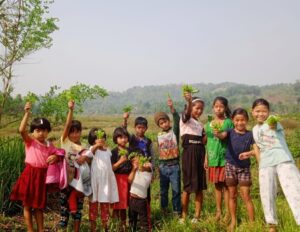DW Media Germany recently published an article titled, “Keeping Indigenous wild food traditions alive in India”; written by Vandana K, illustrating NESFAS’ role as custodians of Indigenous food traditions in the North East of India.
The comprehensive article throws light on how biodiversity loss in recent decades due to development, overpopulation, and climate change have affected indigenous diets among Indigenous Peoples worldwide. In Meghalaya in particular where foraging for wild edible foods has been a traditional practice since time immemorial, the decline in the abundance of wild food species has hit the communities hard.
Vandana K addresses the various issues that have directly and indirectly led to the decline in wild food species and highlights how NESFAS is working with indigenous peoples in the Northeast of India to help keep their food traditions alive. The author gives insight into NESFAS’ Mei-Ramew (Mother Earth) cafe initiative that has been set up in eight different villages in Meghalaya. These revolutionary cafes are known for serving only traditional cuisines prepared with locally sourced organic ingredients.
In addition to the Mei-Ramew cafes, the author also acknowledges the importance of the Agrbodiodiversity walks that are being organised by NESFAS for the younger generations and the role it plays in safeguarding the tradition of foraging as well as the traditional food cultures of these communities.
We, at NESFAS, are humbled to see our work create ripple in far reaching corners of the world and aspire to continue to inspire going forward. Please click on the link below to read the full article that was published on the DW website:
Keeping Indigenous Wild Food Traditions Alive in India



